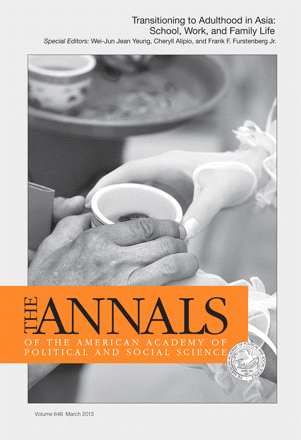Occurring between adolescence and adulthood, “early adulthood” is now recognized among scholars and social observers as an emergent life stage in the Western world. Marked by later entry into the labor force, more time spent in the parental home (or a return to it after a period of independence), and delayed marriage and childbearing, early adulthood as a distinct life stage is seen to be a result of structural, cultural, and normative changes. In sum, the transition to adulthood in the West has become protracted, less orderly or uniform, and more similar between genders (both men and women are delaying marriage, for example). But is the same true for adolescents’ transitions elsewhere in the world? Using “data from censuses, surveys, and ethnographic fieldwork [that] were conducted with both quantitative and qualitative methods,” this volume of The ANNALS explores early adulthood in Asia. Specifically, the contributors to this volume look at various aspects of the transition to adulthood in China, Taiwan, Japan, South Korea, the Philippines, Indonesia, Malaysia, Vietnam, Thailand, and Nepal.

